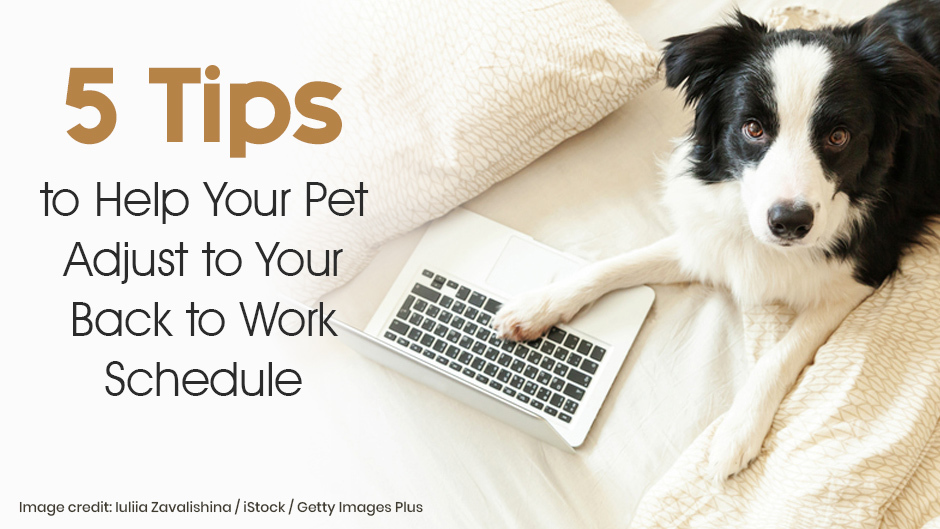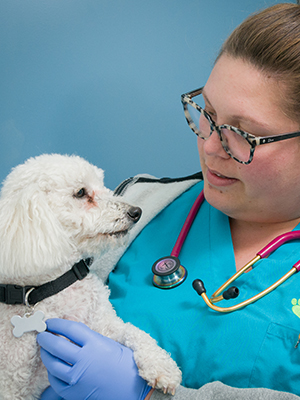As an Amazon Associate I earn from qualifying purchases.
Pets bring joy to our lives. They offer companionship and unconditional love.
But taking care of them requires effort and dedication. Caring for your pet goes beyond feeding and walking. It’s about ensuring their overall well-being. Whether you have a dog, cat, or any other pet, their health and happiness depend on your care.
In this post, we will share five essential tips to help you take good care of your pet. These simple yet effective tips will make a big difference in your pet’s life. Let’s dive in and learn how to be the best pet owner you can be.

Credit: hometownvetcare.com
Healthy Diet
A healthy diet is crucial for your pet’s well-being. Proper nutrition ensures they stay active, happy, and live a long life. Let’s explore some essential tips to keep your pet’s diet on track.
Balanced Nutrition
Providing balanced nutrition is key. Your pet needs a mix of proteins, fats, and carbohydrates. Proteins help build muscles, while fats provide energy. Carbohydrates are essential for digestion and energy.
Here’s a simple table to understand the basic nutritional needs:
| Nutrient | Function |
|---|---|
| Proteins | Builds muscles |
| Fats | Provides energy |
| Carbohydrates | Aids digestion |
It’s also important to include vitamins and minerals. They support overall health. Always opt for high-quality pet food. Check the ingredients on the label. Avoid foods with fillers or artificial additives.
Hydration
Hydration is as important as food. Your pet needs fresh, clean water every day. Water helps in digestion and keeps their body temperature stable.
Here are some tips to ensure your pet stays hydrated:
- Provide clean water daily
- Use a clean bowl
- Check water levels frequently
Dehydration can lead to serious health issues. Always monitor your pet’s water intake, especially during hot weather or after exercise.
Regular Exercise
Regular exercise is essential for your pet’s health and happiness. It helps maintain a healthy weight, reduces behavioral issues, and strengthens the bond between you and your pet. Consistent physical activity keeps their muscles strong and minds active. Here are some practical tips to ensure your pet gets the exercise they need.
Daily Walks
Daily walks are a simple way to keep your pet active. A 30-minute walk each day can do wonders for their health. It provides a change of scenery and mental stimulation. Choose different routes to keep things interesting. Ensure your pet stays safe by using a proper leash and harness. Stick to parks or quiet streets to avoid stress.
Playtime Activities
Playtime activities are another great way to keep your pet fit. Interactive games like fetch or tug-of-war are perfect. These activities engage your pet both mentally and physically. Use toys that are safe and appropriate for their size. Rotate toys to keep your pet interested and excited.
Set aside time each day for a play session. Even 15 minutes can make a big difference. Playtime helps reduce stress and improves your pet’s mood. It’s also a wonderful opportunity for bonding and creating happy memories.
Routine Check-ups
Routine check-ups are crucial for your pet’s health. Regular visits to the vet can help identify issues early. This keeps your pet happy and healthy. Two key aspects of routine check-ups are vet visits and vaccinations.
Vet Visits
Regular vet visits are essential. Your pet needs to see the vet at least once a year. This frequency helps to keep track of their health. During these visits, the vet will:
- Examine your pet’s body
- Check weight and diet
- Look for signs of illness
Vets also give advice on proper care. They can suggest diet changes or exercise routines. Early detection of problems can save lives. Routine check-ups help in catching issues before they become serious.
Vaccinations
Vaccinations protect your pet from diseases. They are an important part of routine check-ups. Pets need vaccinations to stay healthy. Common vaccinations include:
| Pet Type | Common Vaccines |
|---|---|
| Dogs | Rabies, Distemper, Parvovirus |
| Cats | Rabies, Feline Leukemia, Feline Distemper |
Follow the vaccination schedule given by your vet. Missing vaccinations can put your pet at risk. Keep a record of all vaccines. Ensure your pet gets booster shots as needed.
Routine check-ups, including regular vet visits and vaccinations, are vital. They ensure your pet remains in good health. Always prioritize your pet’s well-being.

Credit: www.pinterest.com
Grooming Needs
Taking good care of your pet involves understanding their grooming needs. Regular grooming keeps your pet healthy and happy. It also helps you bond with your furry friend. Let’s explore some key aspects of grooming that you can easily manage at home.
Brushing
Brushing your pet’s coat is very important. It removes loose fur and dirt. Brushing also prevents mats and tangles. For dogs, brushing promotes a shiny coat. For cats, it reduces hairballs. Use a brush suitable for your pet’s fur type. Short-haired pets need less frequent brushing. Long-haired pets may need daily brushing. Make it a calm and enjoyable time for your pet.
Bathing
Bathing your pet keeps them clean and smelling fresh. Dogs usually need a bath every few weeks. Cats typically groom themselves and need fewer baths. Use pet-friendly shampoo to avoid skin irritation. Ensure the water is warm but not hot. Rinse thoroughly to remove all soap. Dry your pet with a towel or blow dryer on a low setting. Be gentle and patient during bath time.
Mental Stimulation
Mental stimulation is crucial for your pet’s overall well-being. Keeping their mind active helps prevent boredom and destructive behaviors. Engaging your pet’s brain can be fun and rewarding for both of you. Here are some effective ways to provide mental stimulation for your furry friend.
Training Sessions
Training sessions are a great way to challenge your pet mentally. Teach them new tricks or commands. It strengthens your bond and improves their behavior. Start with simple commands like “sit” or “stay.” Gradually move to more complex tricks. Keep training sessions short and positive. Use treats and praises to motivate them. This keeps your pet engaged and eager to learn.
Interactive Toys
Interactive toys are excellent for mental stimulation. Toys that dispense treats or make sounds keep your pet entertained. Puzzle toys challenge your pet to think and solve problems. Rotate toys regularly to maintain interest. Choose toys appropriate for your pet’s size and breed. Interactive playtime with toys can reduce stress and anxiety. It also provides physical exercise, which is essential for their health.
Safe Environment
Creating a safe environment for your pet is essential for their well-being. Pets, like children, are curious and love to explore. Ensuring their surroundings are secure can prevent accidents and promote a happy, healthy life.
Pet-proofing Home
Start by identifying potential hazards in your home. Remove small objects that pets might swallow. Secure loose wires and cords to prevent chewing. Store harmful substances, like cleaning products, out of reach. Ensure windows and balconies have secure screens to prevent falls.
Comfortable Living Space
Provide your pet with a comfortable living space. Choose a quiet area away from noise and drafts. Ensure the space is large enough for your pet to move around. Add cozy bedding for comfort. Keep their favorite toys and water within easy reach. This will make your pet feel safe and relaxed.
Social Interaction
Ensuring your pet’s well-being includes providing proper social interaction. Pets, like humans, need socialization to thrive. Social activities can improve their mental health and behavior. Here are some tips to enhance your pet’s social life.
Playdates
Organize playdates for your pet. Playdates help pets bond and develop social skills. Consider the following steps:
- Find pets with similar energy levels.
- Choose a safe, enclosed area.
- Monitor the pets’ interactions.
- Provide toys and treats.
Regular playdates can make your pet happier and more confident.
Pet Socialization
Focus on pet socialization from a young age. Early socialization helps pets adapt to various environments and people. Follow these tips:
- Introduce your pet to new places.
- Expose them to different sounds and sights.
- Let them meet new people and animals.
Use positive reinforcement, like treats and praise, to encourage good behavior. Socializing your pet can lead to a well-adjusted and friendly companion.

Credit: animalfoundation.com
Emergency Preparedness
Emergencies can happen at any time. Being prepared is crucial for your pet’s safety. This section will help you get ready for emergencies. It covers creating a first aid kit and having emergency contacts. Follow these tips to ensure you can act fast and keep your pet safe.
First Aid Kit
A first aid kit is essential for any pet owner. It helps you handle minor injuries and emergencies. Here’s what to include in your kit:
- Gauze pads and bandages
- Adhesive tape
- Antiseptic wipes
- Tweezers
- Scissors
- Thermometer
- Hydrogen peroxide
- Saline solution
- Eye dropper
- Any prescribed medication
Store the kit in a safe, accessible place. Check it regularly. Replace used or expired items. A well-stocked kit can save your pet’s life in an emergency.
Emergency Contacts
Having emergency contacts ready is vital. Create a list of important numbers. Include:
- Your veterinarian
- 24-hour emergency vet clinic
- Animal poison control
- Local animal shelter
Keep this list in your first aid kit. Also, save the numbers on your phone. Share them with family and pet sitters. Quick access to these contacts can make a big difference in an emergency.
Frequently Asked Questions
How Often Should I Groom My Pet?
Groom your pet at least once a week. Regular grooming helps maintain their coat and skin health.
What Are The Best Foods For Pets?
Choose high-quality pet food with essential nutrients. Consult your vet for recommendations based on your pet’s needs.
How Can I Keep My Pet Active?
Engage your pet with daily walks, playtime, and interactive toys. Regular exercise keeps them healthy and happy.
How Often Should I Visit The Vet?
Visit the vet at least once a year. Regular check-ups ensure your pet’s overall health and early detection of issues.
Conclusion
Taking care of your pet is a big responsibility. Follow these tips to keep your pet healthy and happy. Regular vet visits are crucial. Good nutrition matters. Exercise keeps your pet fit. Love and attention make your pet feel secure.
Spend quality time together. Pets are family. Treat them well, and they will bring joy.
As an Amazon Associate, I earn from qualifying purchases.
